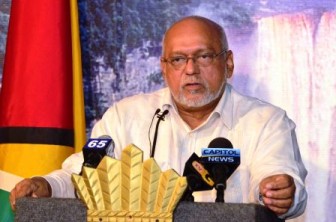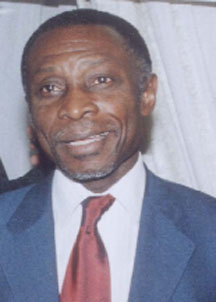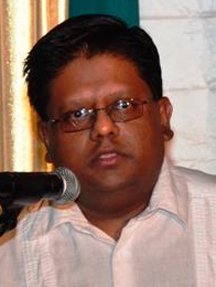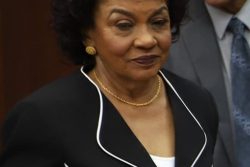President Donald Ramotar yesterday said that he would have to seek legal advice on whether he should assent to opposition-piloted legislation such as the proposed amendment to the President’s Benefits and Other Facilities Act.
He was at the time speaking at a press conference held at the Office of the President – his first for 2013 – during which he dealt with current issues.
Questioned on what he intends to do with the amendment when it is eventually passed, President Ramotar said that he will be advised on it and will base his actions on this advice. He, will, however, face an earlier test in the form of the Fiscal Management and Accountability (Amendment) Bill, which the opposition passed on Thursday in the National Assembly using its one-seat majority.

The President had said on June 13, 2012, in an interview with the state media, that he was not going to support any bill piloted by the Opposition. “That is not the function of the opposition. They must respect what is their role …I am making it very clear that I will not assent to any bill that they carry unless it is with the full agreement of the executive and the full involvement of the executive”, the President stated.
The first opposition bill passed in the National Assembly, the Fiscal Manage-ment and Accountability (Amendment) Bill 2012 is intended to bring financial independence to a number of entities now listed as budget agencies under the principal Act.

APNU’s Member of Parliament Carl Greenidge, who piloted the bill, said that the safeguards that the legislation is seeking are intended to protect “our individual rights.” He said that the original Act infringes on Articles 222 and 228 of the Constitution.
Greenidge rejected government’s contention that for him to bring such a Bill he must first bring a white paper to the government with the proposed measures outlined and explained. He said that the government did not need to have a white paper done when it passed the original FMAA.
He added that the discretion that the Finance Minister and Finance Secretary could exercise over budget agencies is unconstitutional. He said to this end, APNU will be seeking an amendment to the Constitution and he said that contrary to what some may believe, the party would not need a two thirds majority to do this.
He pointed out that there are agencies that get a block vote of their funds while others have to wait on the Ministry of Finance to approve their budget. “The Constitution requires that these agencies be financially independent,” Greenidge said.
In June last year, Greenidge had brought a motion seeking to remove entities from the FMAA Schedule and before its debate the government presented an Order removing the Audit Office – one of the several agencies listed – from the FMAA Schedule.
Speaking on the Bill on Thursday, Alliance For Change’s Khemraj Ramjattan supported it.
APNU Member of Parliament Basil Williams pointed out that with the passage of the FMAA in 2003, a manifestation of its unconstitutionality came at the General Elections in 2006 when the Office of the President had control over the funds being allocated to the Guyana Elections Commission.
He said that the Act is contrary to the doctrine of the separation of powers.
However, in response to the opposition’s arguments, Minister of Finance Dr. Ashni Singh said that the real intent of the bill was to create a mirage and a conspiracy theory where one does not exist.
The minister said that there was no adverse intent on the part of government when it passed the FMAA in 2003 and said that at that time no one advanced any such argument against the legislation. “Both sides of the House in 2003 recognised the merits of the Act and what it would mean [for the management of the country’s finances]. The bill (from Thursday) is so fundamentally flawed that at the very least it could have been sent back for editing,” said Dr. Singh.
He said that the bill is misleadingly based on selective referencing of Article 222 (A) of the Constitution.

At the end of the debate, Speaker of the National Assembly Raphael Trotman said that he would be seeking advice on the Bill and would be going over its provisions. Following this, the bill was passed even as government MPs voted against.
The bill is aimed at securing the independence and autonomy of the courts and the service commissions by ensuring that they are funded by a direct charge on the Consolidated Fund rather than by an allocation from the government.
The resolve clause of a motion Greenidge piloted in the House during last year had urged that the National Assembly take steps to amend the Schedule to the Financial Management and Accountability Act 2003 so as to remove the Supreme Court from the Schedule of Budget Agencies “and restore it to its rightful place as an autonomous body drawing directly from the Consolidated Fund and that the changes should be reflected in the Annual Estimates to be submitted by the Minister of Finance for the approval of the National Assembly.”




